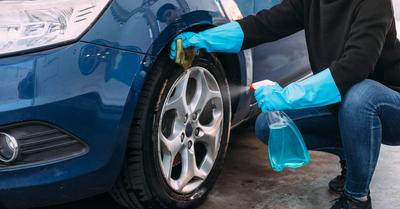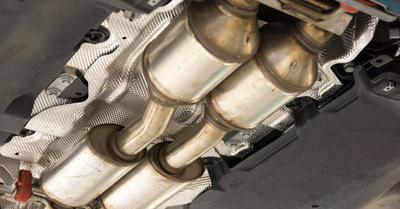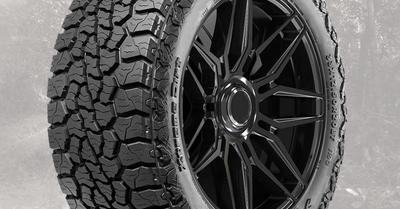Table of Contents
Discover the Size of the Average Car Gas Tank
The capacity of a car's gas tank varies depending on the type of vehicle, such as sedans, SUVs, or trucks. On average, a car's gas tank can hold between 12 and 16 gallons of fuel, with smaller cars tending to have smaller tanks and larger vehicles having larger tanks.
Different car types and manufacturers have their tanks designed to complement the vehicle's overall design and size, with fuel efficiency and passenger or cargo space being important considerations. Reserve tanks also add a few extra miles of travel when the low fuel warning light comes on.
Average Gas Tank Size In Cars
Most cars have a fuel tank capacity ranging from 12 to 16 gallons. However, larger vehicles like trucks and SUVs can hold higher fuel capacity. Here are some factors that influence the size of a car's gas tank.
Fuel Efficiency and Engine Size
Typically, smaller cars tend to have more fuel-efficient engines, which is why they usually have smaller gas tanks. Compact cars like hatchbacks and sedans can store between 12 and 15 gallons of fuel.
These cars often achieve fuel efficiency of up to 30-40 miles per gallon (mpg), making them a practical choice for daily commuting and long trips. A Hyundai Elantra, for example, has a 12.4-gallon fuel tank, while a Mazda3 has a 13.2-gallon capacity.
Tank Capacity and Vehicle Design
The design of the vehicle also plays a crucial role in determining the gas tank size. For instance, smaller cars like compact sedans and hatchbacks have limited space, which affects the fuel tank capacity.
Larger vehicles like SUVs and trucks, on the other hand, have more space to accommodate larger fuel tanks. This allows them to store greater volumes of fuel, making them suitable for longer distances without the need for frequent refueling.
Comparison of Gas Tanks in Different Car Types
Carrying the appropriate amount of fuel is essential for any vehicle. The fuel required depends on the size and weight of the car and the capacity of its gas tank.
Compact and Mini Cars
Compact and mini cars are known for their smaller size and fuel efficiency. Typically, the gas tanks of these vehicles hold between 12 and 15 gallons of gas. For example, a Ford Focus has a fuel capacity of around 12.4 gallons, while the similarly-sized Hyundai Ioniq Blue carries 11.9 gallons of fuel.
Sedans
Sedans, such as the Honda Accord and the Toyota Camry, offer more space and comfort while maintaining good fuel economy. The average gas tank size for sedans ranges from 14 to 18 gallons.
The Honda Accord has a fuel tank capacity of 14.8 gallons, while the Hyundai Elantra offers a 12.4-gallon tank. Luxury sedans like Audi, BMW, and Mercedes-Benz typically have larger fuel tanks, with capacities ranging from 16 to 20 gallons.
SUVs and Trucks
SUVs and trucks carry larger loads, necessitating larger gas tanks. The tank capacity for these vehicle types usually ranges between 18 and 25 gallons, allowing for long-range travel.
Jeep Grand Cherokee has a gas tank size of 24.6 gallons, while a Ford F-150 carries a 23-gallon tank. Some trucks, such as the Ram 1500, are built for particularly heavy-duty needs and come equipped with a 26-gallon fuel tank.
Luxury and Sport Cars
Luxury and sports cars have larger engines and higher power, necessitating more fuel. The average gas tank sizes in these cars range from 16 to 20 gallons.
The Porsche Panamera has a fuel tank capacity of 19.8 gallons, while an Alfa Romeo Giulia carries 15.3 gallons. Sports cars like the Lotus Exige or the Chevrolet Corvette have similarly large fuel tanks to accommodate their powerful engines.
Hybrid and Electric Vehicles
Hybrid and electric vehicles are designed with fuel efficiency in mind and aim to minimize gas consumption. Cars like the Nissan Leaf rely on electricity and have no need for a gas tank, while hybrids like the Toyota Prius have both a gas tank and an electric battery. The gas tank size of a Toyota Prius is 11.3 gallons, and it can travel up to 630 miles on a single tank combined with electrical power.
Here’s a table showing vehicle types and common gas tank capacities
Implications of Low Fuel and Reserve Tank
The fuel gauge in a car helps you monitor the fuel level, and when the low fuel warning light comes on, it's a sign to refuel shortly. Most cars have a reserve tank that holds between 0.75 and one gallon of gas, enough to drive for another 50-75 miles.
Understanding your car's gas tank capacity is vital, as it can help you improve fuel efficiency and gas mileage, particularly for long distances. On average, a car's gas tank will hold between 12 and 16 gallons of fuel
The reserve tank plays a crucial role when your fuel level is low. It's typically around 10-15% of the total capacity and acts as a safety buffer for when the fuel light comes on. Knowing the approximate fuel economy of your vehicle, combined with the reserve fuel capacity.
Driving on low fuel can impact your car's engine system, as it might lead to fuel pump issues. The fuel pump relies on the fuel to keep it cool, and running on a low fuel level can cause it to overheat and wear out prematurely.
Manufacturer Specific Gas Tanks
When it comes to the size of a car's gas tank, it can vary significantly based on the manufacturer and the specific model. Each automaker designs its gas tanks to accommodate the fuel efficiency, size, and overall performance of their vehicles.
Ford Models
Ford offers a wide range of passenger vehicles, from compact cars to full-size SUVs. For instance, the Ford Focus has a gas tank size of around 13.5 gallons, which is quite common for a smaller car.
On the other hand, larger vehicles like the Ford Expedition, a full-size SUV, have a significantly larger gas tank capacity of up to 33.5 gallons. This difference in tank size accommodates the various fuel efficiency levels and driving distances these vehicles can cover.
Chevrolet and Dodge Models
Similarly, for Chevrolet and Dodge vehicles, gas tank sizes can vary considerably depending on the specific model. Chevy Silverado pickup trucks, for example, have a fuel tank capacity of 24-36 gallons, depending on the configuration.
Dodge Ram trucks can have gas tanks ranging from around 26 to 32 gallons. In contrast, smaller cars like the Chevrolet Sonic and Dodge Dart have gas tank sizes of approximately 12 and 14 gallons, respectively, due to their smaller size and higher fuel efficiency.
Asian Car Brands
Asian car manufacturers, including Honda, Hyundai, Toyota, Kia, Suzuki, Nissan, Subaru, and Mazda, offer a wide range of vehicles with diverse gas tank sizes.
Some popular examples are the Honda Civic, which holds around 12.4 gallons, and the Hyundai Elantra, also holding approximately 12.4 gallons. The Toyota Prius, known for its impressive fuel efficiency, has a gasoline tank capacity of around 11.3 gallons.
About The Author

Charles Redding
I've spent many years selling cars, working with auto detailers, mechanics, dealership service teams, quoting and researching car insurance, modding my own cars, and much more.
Read More About Charles Redding







